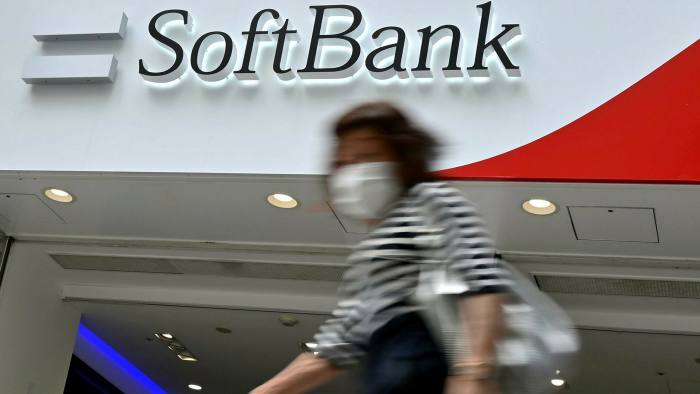
SoftBank executives revive talks on taking Japanese group private
Conglomerate looks at strategy after series of asset disposals, including the $40bn sale of Arm Holdings
by Robert Smith, Arash Massoudi, Leo Lewis, Kana InagakiSoftBank executives have revived discussions about taking the technology group private as the Japanese conglomerate seeks to redefine its strategy after a series of big asset disposals, people with direct knowledge of the matter said.
The talks are driven by frustrations over the persistent discount in SoftBank’s $115bn equity valuation compared with the value of its individual holdings, which continues even after an asset sale programme targeted at closing that gap.
The latest disposal was the $40bn cash-and-stock sale of the UK’s Arm Holdings, the chip designer, to US chipmaker Nvidia.
The deal will make SoftBank the largest shareholder in Nvidia, the Financial Times reported on Saturday, adding to its portfolio of minority holdings that include stakes in Chinese ecommerce group Alibaba and SoftBank’s listed Japanese telecoms unit.
The take-private discussions have also been accelerated by what people close to the company’s senior management say are a number of fundamental changes to SoftBank’s long-term business strategy since it launched the $100bn Vision Fund in 2016.
Core to those, said two people familiar with the situation, is that the company sees itself increasingly as an investor and asset manager rather than a direct operator of businesses as it has been for its 39-year history.
Intense shareholder scrutiny of SoftBank’s recent aggressive bets on US technology stocks — which saw the Japanese group dubbed the “Nasdaq whale” for its outsized equity options trades — have also bolstered the appeal of becoming a private company, the people said.
A potential delisting of SoftBank, which founder Masayoshi Son has flirted with multiple times the past, would strike a heavy blow to the Tokyo stock market, where the company represents the closest business Japan has to Silicon Valley titans. SoftBank is the second-heaviest weighted stock in the Nikkei 225 Average — the tech-heavy benchmark for many Japanese retail and institutional investors.
The talks about management buyout led by Mr Son, who holds a 26 per cent stake in the company, have gained impetus as SoftBank nears the end of an asset sale programme launched in March that was meant to fund $41bn in share buybacks and debt repayments.
That disposal programme was launched in March after SoftBank shares fell to their lowest levels since 2016 during the stock market rout, which also squeezed Mr Son since he has borrowed heavily against his shareholding. The group’s interest-bearing debt stood at $115bn before the asset sales.
At the time, SoftBank briefly explored a take private with the support of activist hedge fund Elliott Management and Abu Dhabi state fund Mubadala.
Since then, SoftBank shares have recovered rapidly to reach their highest levels in 20-years last month. But executives continue to complain, attributing the rally in their own stock mainly to gains in Alibaba’s share price, rather than a narrowing of the discount between SoftBank’s equity value and the value of its holdings.
The group’s stock jumped as much as 10 per cent on Monday morning, putting it on course for its biggest one-day gain since March.
After selling down its stakes in Alibaba, T-Mobile US and its Japanese telecoms business, the value of SoftBank’s Tokyo-traded shares at one point rose to a 20-year high of ¥7,077 ($67) on August 4, but even then, it represented a 45 per cent discount to its asset value. At the height of the coronavirus market rout in mid-March, the discount expanded to 73 per cent.
While he eventually settled with the asset sales, Mr Son’s irritation with his group’s share price was amplified following a 7 per cent drop triggered by recent revelations of SoftBank’s aggressive bets on equity derivatives that helped propel the US stock market to record highs, according to people with knowledge of the discussions.
Internal opposition to a management buyout remains strong, particularly in Japan where there is strong prestige attached to being a listed company, according to two of the people. But Mr Son’s case for an MBO could be strengthened even among sceptics once he pulls off the $40bn sale of Arm to US chipmaker Nvidia.
SoftBank declined to comment.
Market rumours of SoftBank going private have intensified in the wake of the rapid pace of the asset sales and talks to sell Arm to chipmaker Nvidia. “Given the scale of its buyback operations, we think delisting via management buyout is a possibility,” Satoru Kikuchi, an analyst at SMBC Nikko Securities, wrote in a report published last week.
But other analysts and investors have said they regard the chances of an MBO as low. A large part of the relationship that SoftBank has with its megabank lenders in Japan hinges upon its status as one of the country’s most valuable listed companies. Listed status as a company also remains critical in Japan to attracting the best graduates.
Mr Son’s take-private deliberations take place amid what bankers and lawyers in Tokyo describe as an unprecedented wave of MBO discussions among companies that have been listed for decades but now regard the burden of remaining listed as too high.
That is particularly the case, said the chief executive of one of Japan’s largest brokerage firms, for companies that have, like SoftBank, come under criticism over standards of corporate governance.
Additional reporting by Robert Smith